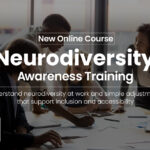
Parenting begins with feeding your child. If you’re lucky, that first latch is as uncomplicated as it can be for a newborn (and new parent). And from there, hopefully, it gets easier. Your baby gains weight and you can trust you’re doing at least one thing right.
For a handful of parents and their babies, this doesn’t happen. Feeding never quite clicks; your child’s development suffers as a result and you feel you cannot provide on the most basic level. One reason for this is Prader-Willi syndrome (PWS) – a genetic disorder that impacts a child’s development and appetite.
It’s rare – seen in only approximately 1 in 30,000 worldwide. Those diagnosed with PWS struggle with eating throughout their life. Newborns resist feeds before falling into a pattern of overeating as they age, which parents may mistakenly welcome. Children with PWS never feel ‘full’ after a meal, no matter how much food they’re given. Behavioural and developmental difficulties are also common symptoms.
There’s no cure, but parents and carers can help their children manage the condition through therapies and diet.
If you’re affected by PWS or worry someone you care about may have the condition, our guide explores the symptoms, causes and treatments that can help.
What are the Symptoms of Prader-Willi Syndrome?
Symptoms of PWS vary in both type and severity. But there are generally consistent signs that first present themselves in infancy. As children with PWS mature, the effects of the condition change.
Symptoms in Infancy
Early symptoms of PWS include:
- A weak cry
- Reduced muscle tone (known as hypotonia)
- Lethargy/tiredness
- Difficulty latching on during feeding
If your infant feels ‘floppy’ when held, it may indicate a lack of muscular development – an early sign of PWS. Weight loss is almost guaranteed, too, since PWS makes feeding more challenging for infants.
Symptoms in Childhood
As children with Prader-Willi syndrome age, symptoms change and become more noticeable.
Childhood symptoms include:
- Unique facial features such as almond-shaped eyes and a triangular-shaped mouth (these may be present in infancy but become more noticeable as children age)
- A longer, more narrow head shape
- Underdeveloped genetalia
- Small hands and feet
- Short height
Prader-Willi syndrome affects hormone production, leading to a general underdevelopment in those with the condition. The effects aren’t only physical, however.
Increased Appetite
Increased appetite is probably the most well-known Prader-Willi syndrome effect. It’s particularly noticeable since PWS initially makes it less likely for infants to feed regularly and gain weight.
However, from around the age of two, children with the condition won’t feel satisfied after a meal. Essentially, they never feel ‘full’ despite eating a healthy amount. This is known as hyperphagia.
While it isn’t inherently harmful to health, unmanaged hyperphagia can lead to regular overeating. Individuals with PWS are consequently much more likely to develop obesity, which often causes further health complications, such as type II diabetes and heart disease.
Behavioural and Developmental Symptoms
Minor learning difficulties are also strongly associated with PWS. Slow speech and language development is a common side effect, as are poor motor skills.
The condition also makes sudden behavioural or emotional changes more likely. Children with PWS will often experience temper tantrums or similar outbursts. They can also be unusually stubborn.
General obsessive behaviours are another commonplace symptom of PWS. Compulsive tendencies vary, but picking at the skin is frequently observed in those with the condition.
Other Symptoms
PWS can also affect:
- Sleep – children with PWS often suffer from disordered sleeping
- Skin pigment variation (hypopigmentation) – children’s hair, skin and eyes may appear lighter in tone due to a lack of pigment
- Increased vulnerability to respiratory infections
What Causes Prader-Willi Syndrome?
PWS is a genetic disorder caused by chromosomal abnormalities during early development. Specifically, abnormalities with chromosome 15, known as the Prader-Willi/Angelman syndrome region.
Most (around 60%) of PWS cases result from a deletion. This is where part of the chromosome is missing. Other instances are caused by a chromosome duplication, which has the same effect. You can read more about the science behind PWS here.

It’s important to note that PWS happens randomly. It’s not an inherited condition and these chromosomal issues, while rare, can happen to anyone.
Is it Possible to Prevent Prader-Willi Syndrome?
Since PWS is a genetic condition, it cannot be prevented. There are no known behaviours or circumstances during pregnancy that make the disorder more or less likely to develop.
How is Prader-Willi Syndrome Diagnosed?
Most diagnoses involve:
- A physical examination
- An analysis of behaviour, particularly habits around eating
If these checks suggest a diagnosis of PWS, the doctor should follow up with a genetic test. Genetic testing will confirm if it’s PWS or another condition.
How is Prader-Willi Syndrome Treated?
There is no cure for PWS. However, through early intervention and consistent treatment, outcomes can be improved.
Diet
Since children with PWS won’t naturally manage how much they eat, parents and carers need to help. Anyone living with PWS needs a balanced, calorie-controlled diet. While difficult, it’s sometimes necessary to deny young children food if they’ve eaten enough to sustain their health.
Hormone Therapies
Growth hormone therapy can improve muscle mass and overall physical development. This treatment form should be prioritised and offered as early as possible.
Hormone replacement therapy (HRT) may also be helpful when children living with PWS age into adolescence. Since PWS affects genital development, it also affects puberty. HRT can help counteract this deficiency and support normal growth into adulthood.
Behavioural Therapies
Speech and language therapies will help children with Prader-Willi syndrome overcome their natural difficulties in this area.
Other forms of counselling or emotional therapy will also help with behavioural symptoms of PWS. If counselling or talk therapies aren’t effective, medication may be prescribed.
Educational Support
Children with PWS will likely need additional support in schools. Schools must offer children with special educational needs, such as PWS, an individual education plan (IEP). IEPs outline the necessary provisions for a child to succeed and explain how the school will deliver them.
Employment Support
Prader-Willi syndrome primarily affects development during childhood. However, it has implications for adulthood, and those living with the condition may need additional support when they enter employment.
Employers are obligated to make reasonable adjustments for staff with disabilities, including the potential learning disabilities that come with PWS. There’s really no one support strategy, however. Employers must learn about their staff’s specific needs and act accordingly.
Our online Disability Awareness course helps you appreciate different types of disability and how they can affect work. It also covers your duties as an employer, what you can do to support staff and ways to tackle discrimination.



























































































































































































































































































































































































































































































































































































































































































































































